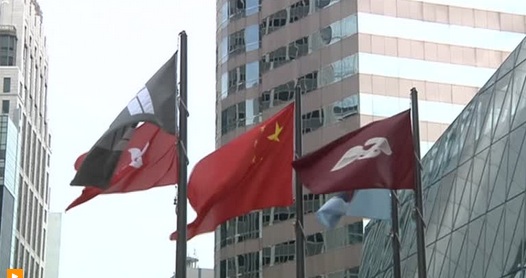
(Reuters) Analyst said on Wednesday (July 8) that the measures taken by Chinese authorities to support its tumbled stock markets were seen as “backsliding” from its greater financial reform.
Chinese stocks continued plunging on Wednesday after the country’s securities regulator warned investors were in the grip of “panic sentiment” and the market showed signs of freezing up as firms scrambled to escape the rout by having their shares suspended.
“It’s very bad. It could potentially get a lot worse. I don’t see anything that says it’s going to stabilise mid-term. And in fact I think all the gains that we’ve seen in this stock market since this bull market began last summer can be given back. Effectively within 12 months we can reach for the sky and come crashing all the way back to earth again,” said Michael Every, the Head of Financial Research of Rabobank.
Beijing, which has struggled for more than a week to bend the market to its will, unveiled yet another battery of measures to arrest the sell-off, and the People’s Bank of China said it would step up support to brokerages enlisted to prop up shares.
With another round of margin calls forcing leveraged investors to dump whatever shares could find a buyer, blue chips that had been supported by stabilisation funds earlier in the week bore the brunt.
Every believes that measures taken by Chinese government would “backslide” from its greater financial reform.
“They are doing pretty much everything bar the PBOC (People’s Bank of China) saying we’re going to buy the market or we’re going to artificially tell you what the value of a particular stock is. Will they get to that level? Possibly. Will they suspend the entire market? Nothing can be ruled out if we keep seeing eight percent falls day after day after day. One would hope not because China was supposed to be moving towards greater reform in the financial market area. And everything they are doing at the moment is backsliding from that,” Every said.
Hong Kong’s Hang Seng Index fell 6.2 percent, with shares of Chinese brokerages taking a heavy beating.
The CSI300 index of the largest listed companies in Shanghai and Shenzhen fell 7.1 percent, while the Shanghai Composite Index dropped 6.3 percent.
More than 30 percent has been knocked off the value of Chinese shares since mid-June, and for some global investors the fear that China’s market turmoil will destabilize the real economy is now a bigger risk than the crisis in Greece.
Chinese investors express their concerns about the markets.
“Am I happy? Of course I am not happy. When I look (at the index), I feel nervous all over my body. I’m worried so much. How could the markets drop like this? There is no markets would plunge like this. (The market) opens with plunge to its daily limit. How can we stand it? Right? No markets would plunge like this. I have invested in the markets for so many years, I’ve never seen such kind of slump before, never,” said 67-year-old investor He Meizhen.
“The government has already taking actions to save the markets. Policies have been published. Right now, we have to see how the markets go. It’s not enough for government to save it, but all institutes have to save themselves. That will be workable. There are so many things to do for a country, how is it able to handle everything?” said 75-year-old investor, whose surname is Zhu.
More than 500 China-listed firms announced trading halts on the Shanghai and Shenzhen exchanges on Wednesday, taking total suspensions to about 1,300 – 45 percent of the market – as companies scuttled to sit out the carnage.
With so many small-cap companies sheltering on the sidelines, the ChiNext growth board, which has seen some of the biggest swings in valuations, fell a modest 0.8 percent.







